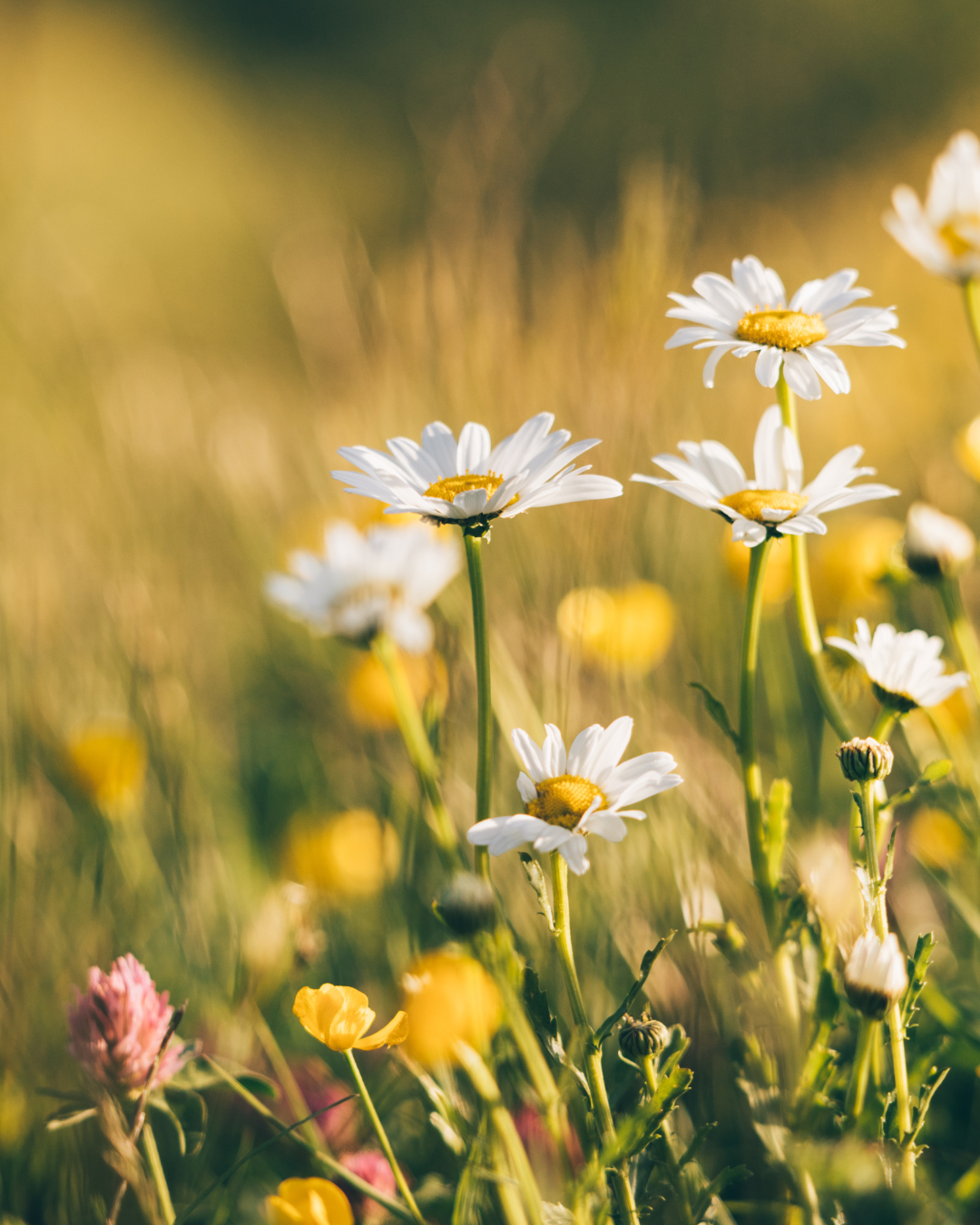Let's Talk About Wildflowers 🌸🌿
You might have noticed that every container candle from The Scented Essence comes with a little wildflower seed dust cover—and today, I want to share exactly why these tiny seeds hold such a big place in my heart.
Wildflowers Aren’t Just Pretty Flowers
Sure, wildflowers look lovely scattered across a garden, balcony pot, or windowsill planter—but their beauty is just the beginning. These vibrant little blooms support a whole ecosystem. Bees, butterflies, and other pollinators rely heavily on wildflowers for food and habitat. And pollinators are essential: they help plants reproduce, boost biodiversity, and even support the crops we depend on for our food.
Supporting Bees and Pollinators
Bees are crucial pollinators, responsible for helping nearly 80% of flowering plants—including our fruit and vegetable crops—thrive. Sadly, bee populations are declining, but wildflowers provide crucial nectar and pollen sources that help bees and butterflies flourish. By planting wildflowers, you’re directly helping to protect these vital little workers.
Boosting Biodiversity and Soil Health
Wildflowers also help improve soil health and prevent erosion by establishing strong root systems. They're incredibly resilient, often thriving in places where other plants struggle, helping to restore balance to local ecosystems. Whether it’s a sunny corner in your garden or a neglected balcony pot, wildflowers can transform spaces with vibrant life.
Enhancing Mental Health and Wellbeing
Beyond environmental benefits, wildflowers can significantly boost our mental health and wellbeing. Spending time among blooming wildflowers reduces stress, enhances mood, and promotes a sense of peace and connection with nature. Their vibrant colors and gentle movements in the breeze offer a calming and uplifting presence, turning any space into a soothing sanctuary.
Natural Pest Control
Wildflowers such as oxeye daisies, red clovers, poppies, and wild carrots serve as natural pest controllers by attracting beneficial insects like ladybirds, lacewings, and hoverflies, which help keep garden pests at bay. This practice has long been used by farmers, planting wildflowers alongside crops or on farm perimeters, effectively reducing the reliance on chemical pesticides and protecting crops naturally. Recent studies have supported this method, finding it can significantly reduce pesticide use and protect plants from insect damage.
Improving Air Quality and Acting as a Carbon Sink
Wildflowers, like all plants, enhance air quality by absorbing carbon dioxide and releasing oxygen. More importantly, wildflowers and their root systems can capture and store carbon, acting as an effective carbon sink. This ability helps offset greenhouse gas emissions, contributing to the overall health of our planet and atmosphere.
Creating Wildlife Habitats
Wildflowers provide essential shelter and nesting sites for various wildlife species, including birds, small mammals, and beneficial insects. By planting wildflowers, you're creating a mini sanctuary that supports local biodiversity and helps maintain ecological balance.

Easy to Grow, Easy to Love
One of my favourite things about wildflowers? They’re genuinely effortless. No green thumb is required! Just sprinkle the seeds under a little soil, water gently, and watch them bloom. They’re forgiving, beautiful, and beneficial—what’s not to love?
A Little Gift from The Scented Essence
Including wildflower seeds with every candle isn't just a gesture; it’s a core part of my mission to create a more sustainable, beautiful world. It's my little way of saying thank you and giving back—ensuring that every candle purchase doesn't just fill your home with warmth and fragrance, but also helps nature thrive.
So next time you plant those tiny seeds, remember—you’re part of a bigger picture, helping the bees, the planet, and creating beauty that lasts beyond the flicker of a candle flame.
Happy planting! 🌱✨
— Cheryl, The Scented Essence


